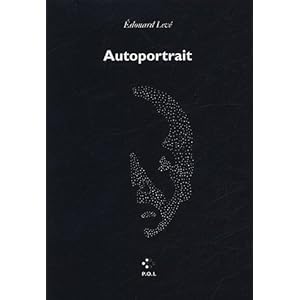"When I am returning from a trip, the best part is not going through the airport or getting home, but the taxi ride in between: You're still traveling, but not really."
-Édouard Levé, from Autoportrait (more here)
I find something about the way Autoportrait is written (which reminds me of Jonathan Safran Foer's "Here We Aren't, So Quickly") incredibly moving.
Disjointedness used to be a big problem for me, in my own writing and others'. I despised what I thought of as the facility of spitting out a bunch of random images and forcing the reader make the depth. I hated any small, fragmented, poignant moments. She's washing the dishes! Now she's remembering a time when her dad pushed her on the swingset! Now the news is showing a story about a lost cat! The End! Stories that are as unassertive as a limp handshake and blink sweetly and mundanely at you and ask you to sit back and carefully consider why all those casual details are in there, so the burden left from the author's laziness is transferred onto you. (Part of the reason why I loved The Magic Mountain so much is that it never does that, unlike so many "good" workshop stories. Among its other great qualities, it is in no way casual. It reminds me of my drawing teacher telling us we ought to go look at Titian paintings but we will learn nothing from them because they are so perfect.)
But there's a different kind of disjointedness, a not-shitty kind, the kind in Autoportrait/"Here We Aren't." Association, not straightforwardness, is what makes the transcendence in those two, and by transcendence I mean a feeling of not-aloneness. I have always loved the idea of association-as-analysis.
Proust says, "The reader's recognition in himself of what the book says is the proof of the book's truth." I more naturally think, the recognition in yourself of what the book says is proof that you're not totally alone, which is of course encompassed in what Proust says, because feeling not alone is always self-reflexive anyway and you can't get past your own perception etc. Paradoxically, in these cases, that not-aloneness comes from the story letting you draw the connections on your own. You don't need a voice to guide you, or an opinion--just a set of impressions, the raw material.
But I am over-generalizing. All I mean to say is that Autoportrait is awesome and so is a structure of fragments, sometimes, because sometimes it's just so exactly right. I feel I have to mention some complicating factors, such as: "Gusev" is transcendent but doesn't make me feel not-alone; Proust never stops opining and guiding you but his stuff is some of the least-alone-feeling artwork in the universe. Right now I'm reading American Psycho, and as fun as it is, irony is not really a part of this discussion because I never find irony transcendent, because I am a big warm bleeding heart. Rilke: "Seek the depth of things: Thither irony never descends."
(I think I could rename this blog/my life "Thoughts on aloneness." But --- is a more catchy title, don't you think? Another memory from childhood: Being obsessed with that e. e. cummings poem l(a. I think it is a good poem for kids.)


No comments:
Post a Comment